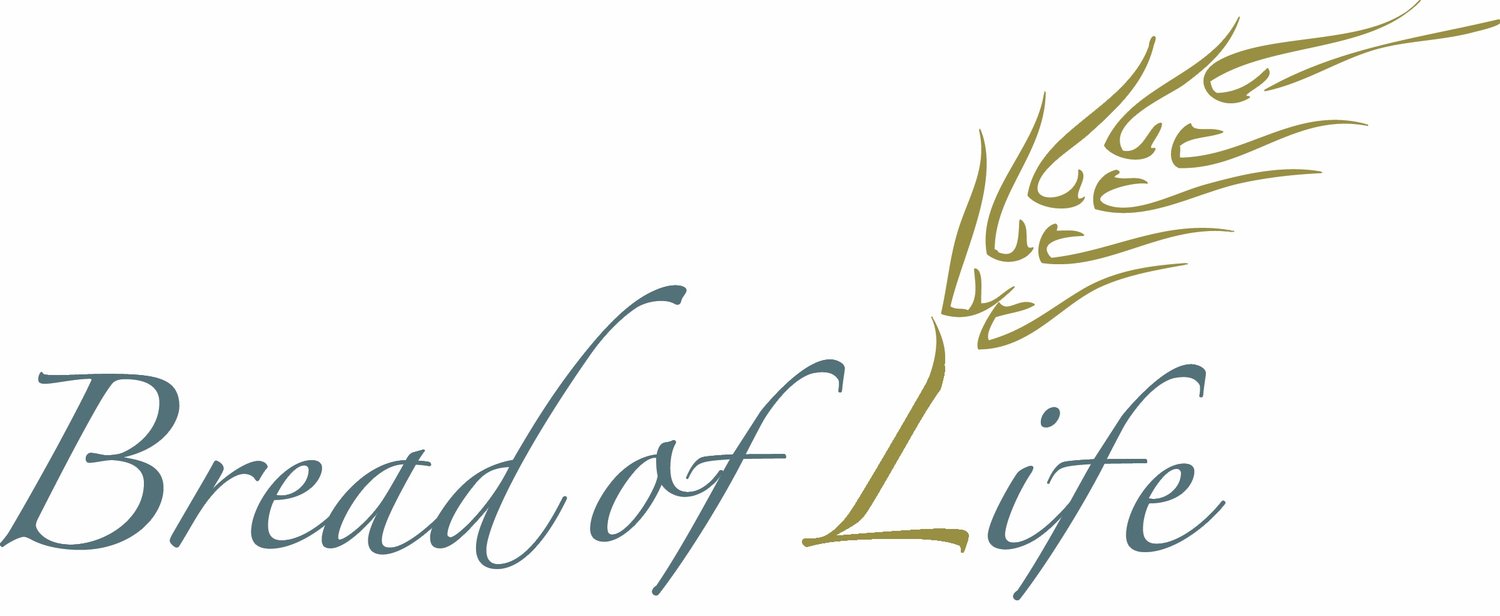Excerpts from Susan Hayward’s interview with Julie Garvey as she prepared to end her term as the Board President of Bread of Life.
Tell me about your first encounter with Bread of Life.
Beginning in 2001, I left our family wine business and went to the Franciscan School of Theology at the Graduate Theological Union in Berkeley to earn my Master’s in Theology. Simultaneously I attended the San Francisco Theological Seminary to attain my Diploma in the Art of Spiritual Direction. I absolutely loved my studies but as I studied the Gospels, I wondered why 4 gospels? Why these 4 gospels? And where were the women? My friend Marjorie Hoyer Smith introduced me to Alexander Shaia who was working with a small group of interested people at Bread of Life to explore his theory of the gospels as the key to the 4 fold path of transformation rather than 4 biographies of Jesus. Later, I was invited to join that group which allowed me to experience first-hand the richness of Bread of Life and the people who participate in it.
Share with me your experience of being Board President—what does it mean to you?
Being Board President is a privilege-I usually say no to other boards, but this board has heart. In summary:
“The work we do is how we do the work and how we do the work is the work we do.”
3 years ago I was invited to join the Board of Directors (a board of 3) and became Board President. It was a time of uncertainty since the former board had voted to close Bread of Life but our conversations with supporters and participants of the Center indicated that there was life and energy and that our work was not complete. A Board of three reopened the doors and a year later I was asked to replace Joan Stockbridge as Board President.
It is thrilling to be a part of our current Board of Directors of five. We work differently than most other boards. We use our strategic plan to form how we stay in alignment with our vision and mission. We read through the vision and mission statements at the beginning of each board meeting to remind us of our responsibility as a board member.
I love humor to break the ice, to hopefully draw people out, and to balance the seriousness of our work. We laugh a lot as a board.
Board work was particularly challenging at first because we were in the midst of the pandemic and the office was not open. Bread of Life had always been a gathering place so we wondered what would the future bring? In hindsight, Covid had gifts for us. We, by necessity, had to learn how to build a virtual community. I have so much hope that Bread of Life will continue to be vital and generative through, not only through local offerings, but also hybrid and virtual ones. I love to see how we are growing out of covid—able to be more expansive.
Tell me about the Community of Practice—what drew you to become a part of it?
Sometimes I get a call that is a little whisper—I may not know what it is saying, but know that I am to pay attention to it. We are in turbulent times and our human family is suffering. It is easy to get sucked into despair and fear. But this whisper seems to be saying to me, “Stay awake. Find Companions. Go Deep. Trust Love. Be Love.”
I have been listening over time to Sandra Lommasson’s desire to create an intentional community. I think the Community of Practice is the outgrowth of that desire. It matched my own realization that I need others to stay on the contemplative depth journey. Frances Weller calls it the “solitary journey we cannot make alone.” I was particularly attracted to this group because it is open to people who do not necessarily live in close proximity or share the same faith.
What has been an unexpected experience/outcome of participating in Community of Practice?
Another surprise for me and for the group—I/we set out on a spiritual journey and find out it is not just my work, it is our work—this is the work we cannot do alone. At a recent retreat, we were surprised during the check-in that each of us was sharing some expression of the same deep sorrow for the world. If we had not had this time together, we might not have recognized our local and global connections. We might have been caught in a narrative of us and them or even despair. Instead, I felt that we found support and understanding together – a safe harbor in a storm.
What is one message you would like to tell the world about Bread of Life’s Community of Practice?
The spiritual journey is not a solitary one—some people can be hermits but generally, we are communal people. This is the important work we cannot do alone. We do it with fellow travelers who want to share deeply, honestly and be vulnerable—for the benefit of the world we live in. We need to be the light in a world where it is easy to lose heart, and this is heart work.
Thank you to Julie for her service on the Bread of Life Board from 2019-2023!

